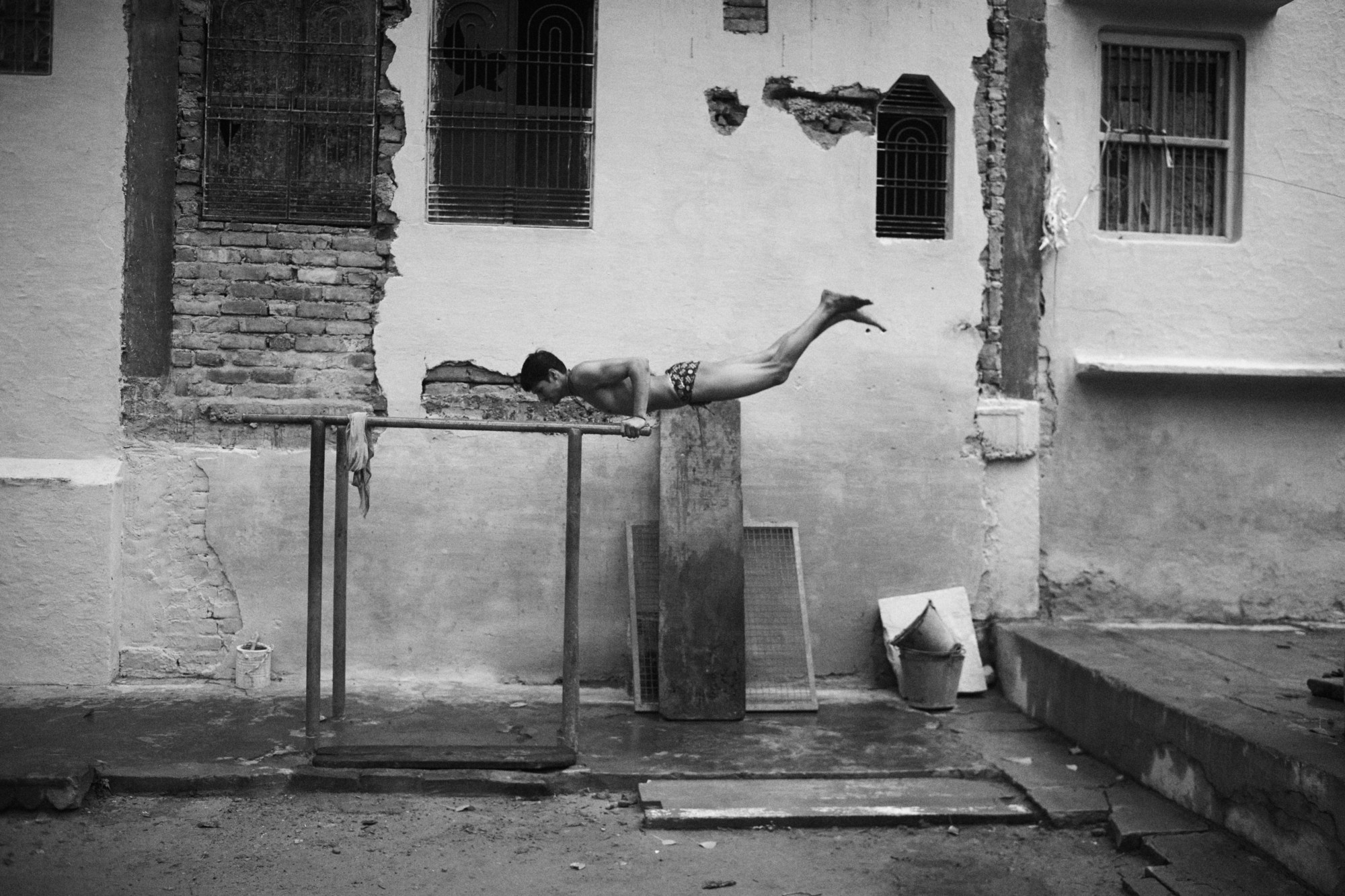Pehlwani, also known as Kushti, is a traditional form of wrestling that has been practised in India for centuries. Photographer Douglas Irvine’s latest book – पहलवानी – takes us inside an Akhara, a school in which young men undergo rigorous training to become champion pehlwans. “These are magical places,” Douglas says.
Living by a strict regime of exercise six days a week, and a diet devoid of heavily spicy or sour foods, these apprentices are guided from morning to night by an experienced guru. “The whole process of practicing Kushti to me seems to bear much resemblance to devoting yourself to Buddhism, both physically and mentally,” he says. “The word Akhara, for example, is also used to describe a religious temple.”
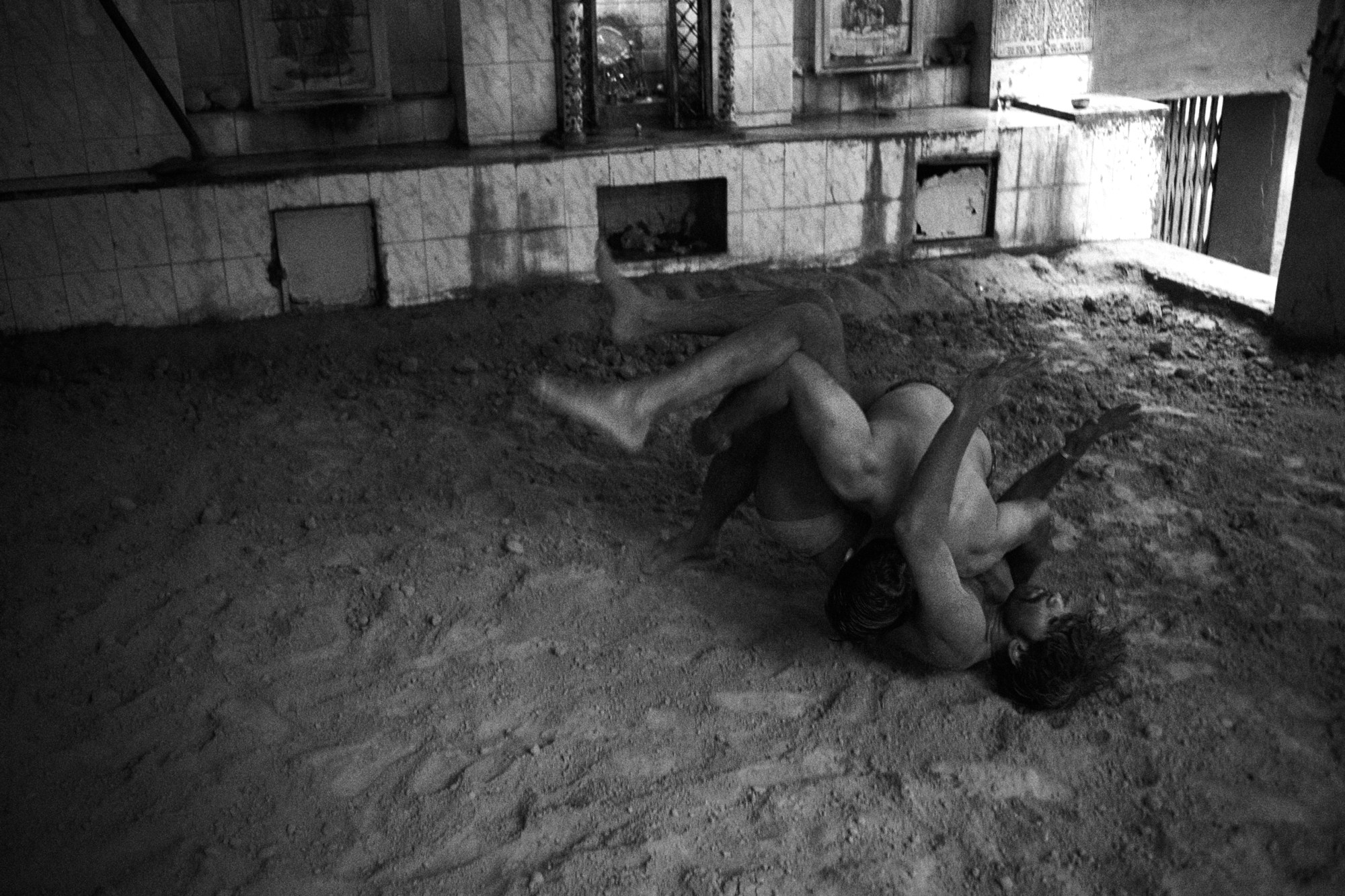
But with Kushti declining in popularity in the modern world, the Akhara in this story is just one of many on the brink of closing down. In fact, Douglas says that less than a fifth of India’s Akharas that once existed are still functioning. “I read that an increase in the consumption of alcohol amongst younger generations in India — which doesn’t sit well with the practice — was contributing to a disinterest in the sport,” Douglas says. “And modern gyms, akin to the type we might see here in the west, are becoming increasingly more popular too.”
Douglas, a photographer originally from Scotland, actually happened across this story by accident. He was on vacation in Varanasi, a city on the left bank of the Ganges in the north of India, “an incredible place” but quite easy to get lost in, when he stumbled inside an Akhara by chance. “I pretty much walked right in trying to find my way back to the place I was staying,” he says. “I came back the very next day and started taking pictures. Everyone there was so happy to have me come take some photos. In return, I helped them keep the place alive a little longer. They needed some building work done, so I helped them get a new toilet which was needed to keep the place open.”
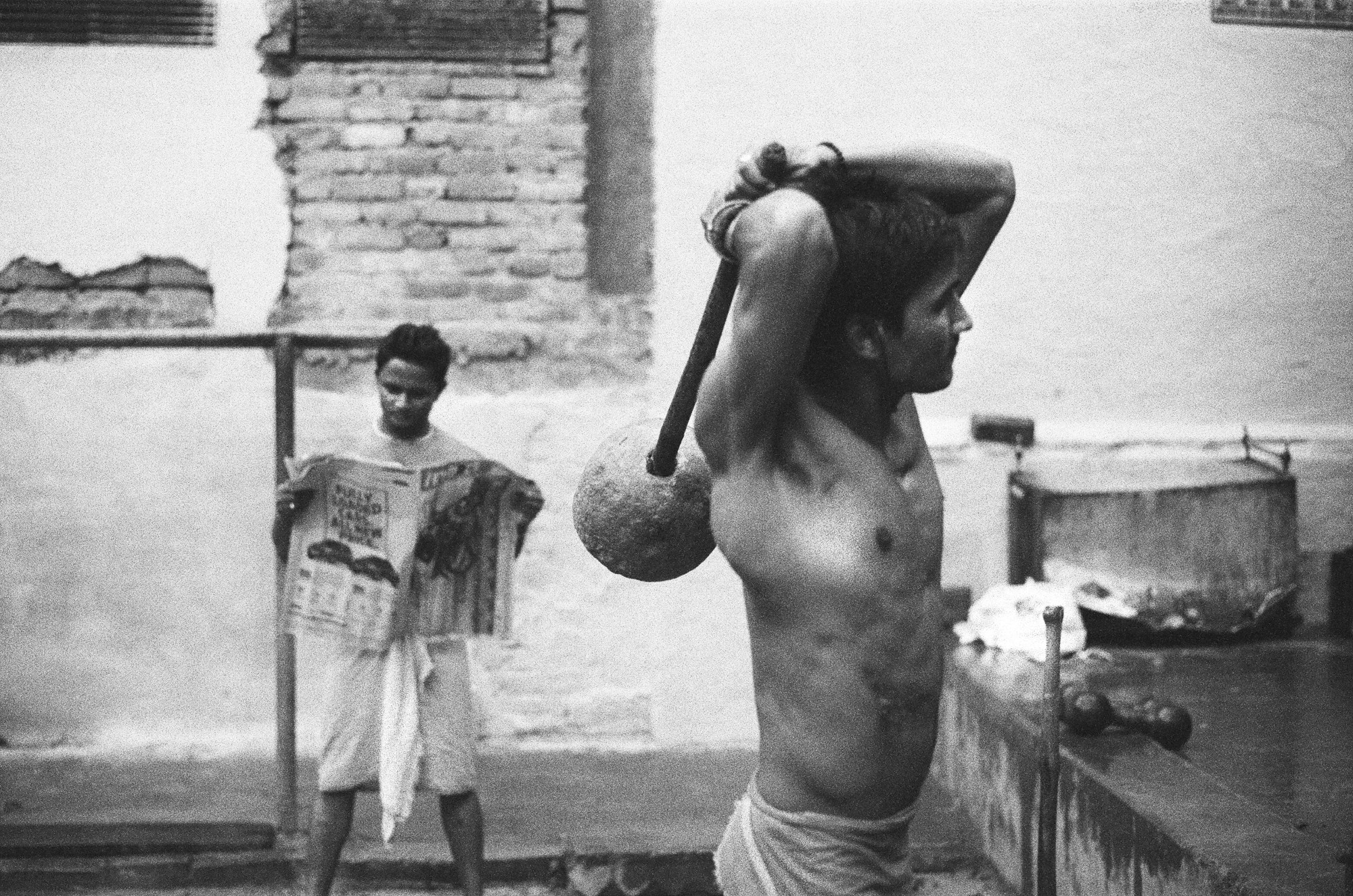
Once he’d returned from his trip, Douglas saw the project as an opportunity to enjoy the process of creating something slowly, taking his time with these hand-developed black-and-white prints — a contrast to the more ephemeral fashion stories he often works on. “It was nice to be able to take my time with no deadlines,” he says. “I was forgetting how to use a darkroom and really got back into it thanks to this project.” But the project began to take on a new resonance and purpose as coronavirus tore through India and devastated its health services. As photography print sales began springing up as a means to contribute something helpful to the escalating crisis, Douglas decided to publish the book and donate the proceeds to charity. “The coronavirus crisis in India is extremely bad, so, if releasing this book can help that then I think it’s terrible not to.”
Knowing the context behind the project — the decline of a centuries-old sport that uses handmade equipment and requires intense focus and discipline, as well as the looming threat of coronavirus that follows its creation — these images have a melancholic feel to them. The presence of the pehlwani wrestlers Douglas photographs feels incredibly poignant: strong and focused, following in the footsteps of ancestors who have practised the sport since the 16th century, but caught at a moment when traditions are fading. “Inside was a complete contrast to the city just outside the walls,” Douglas adds. “So peaceful.”
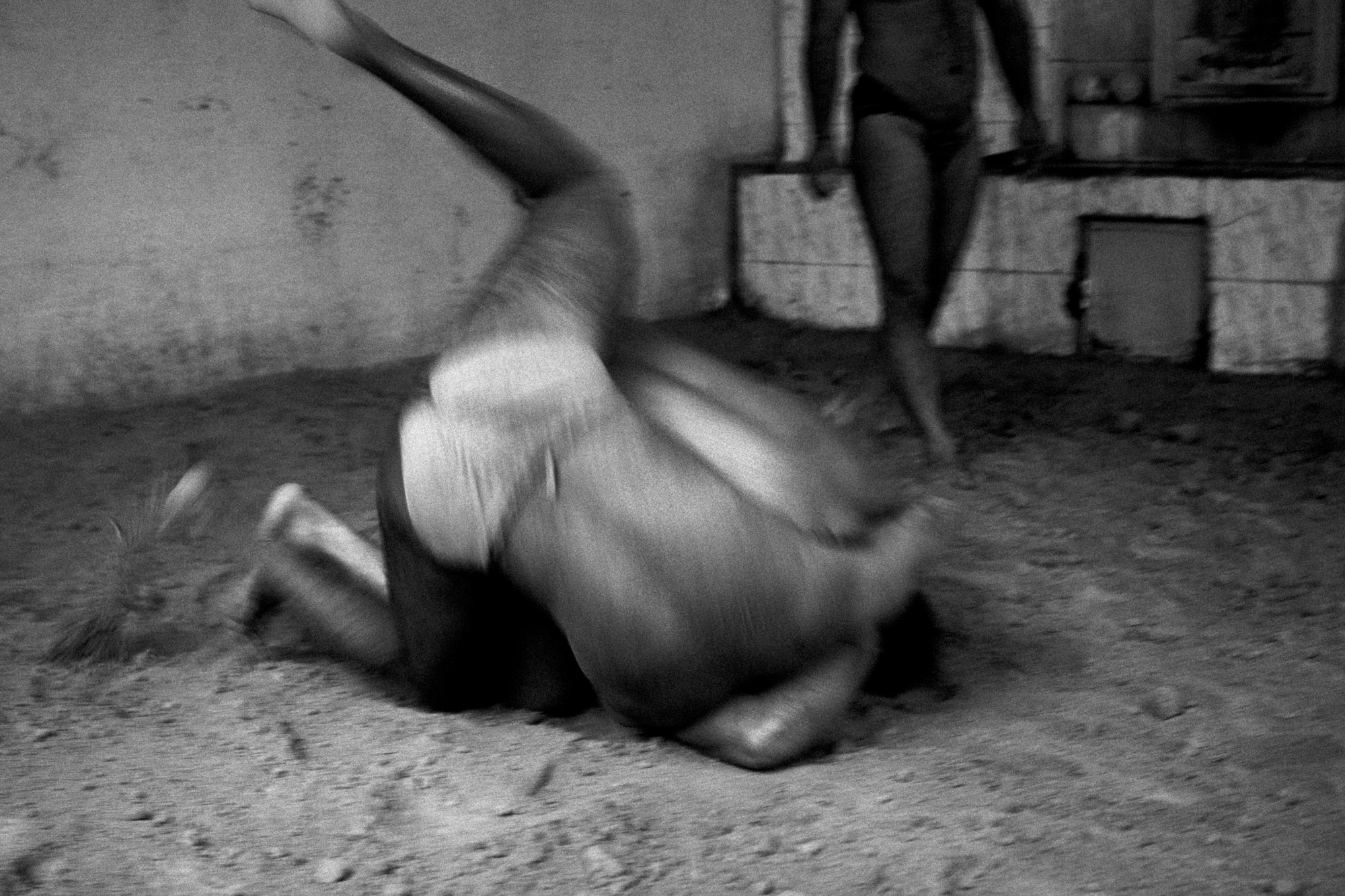
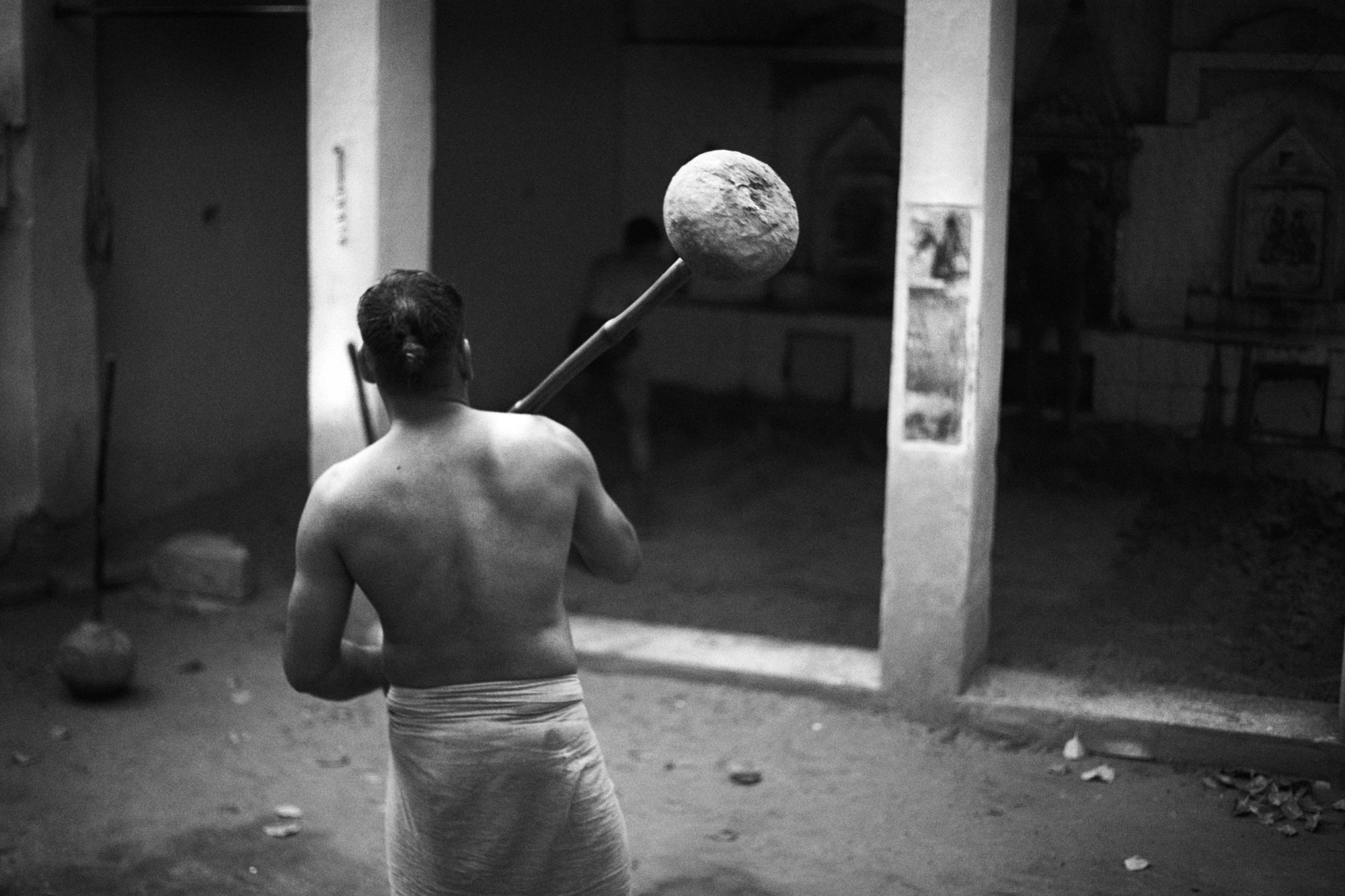
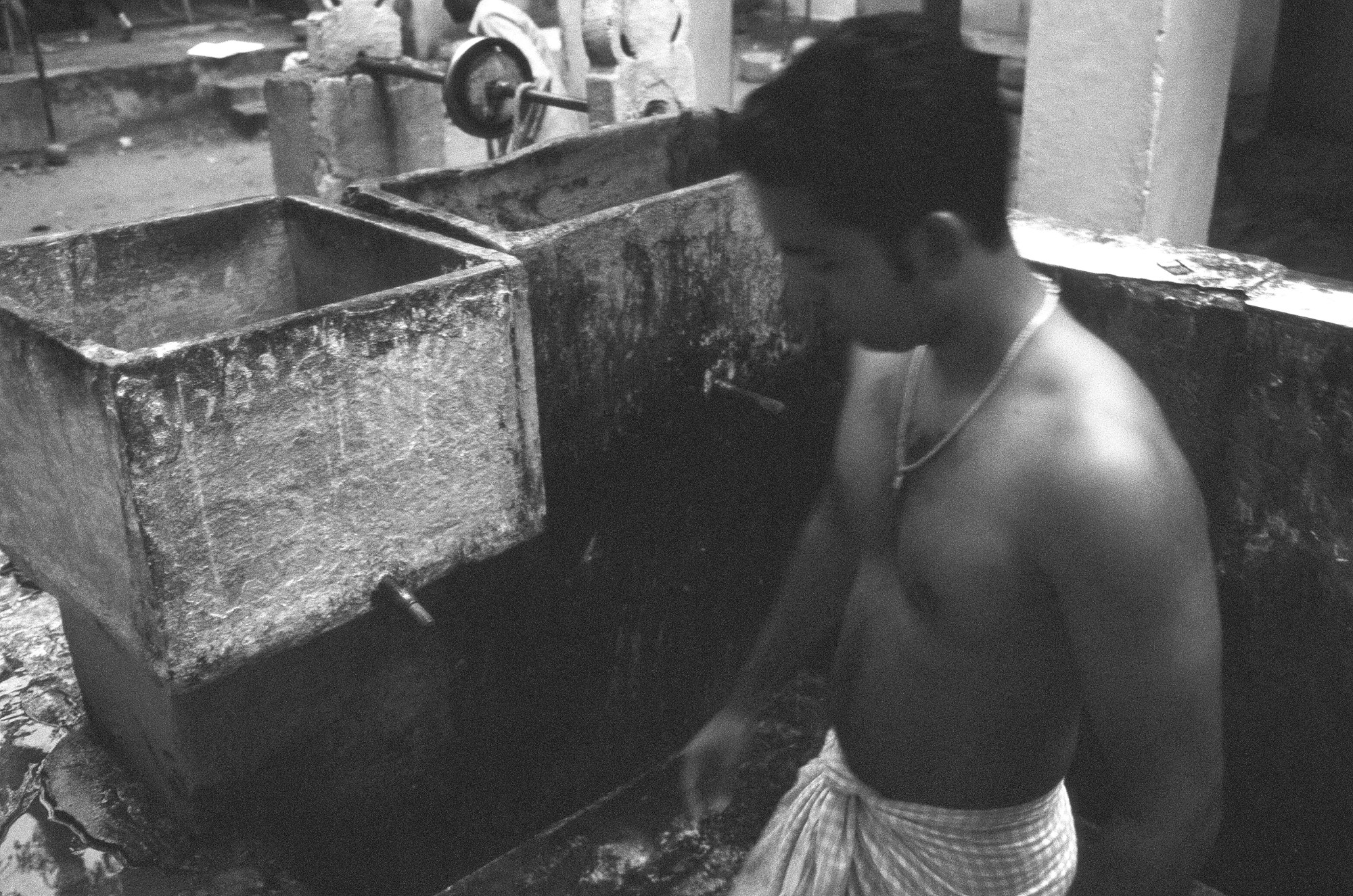
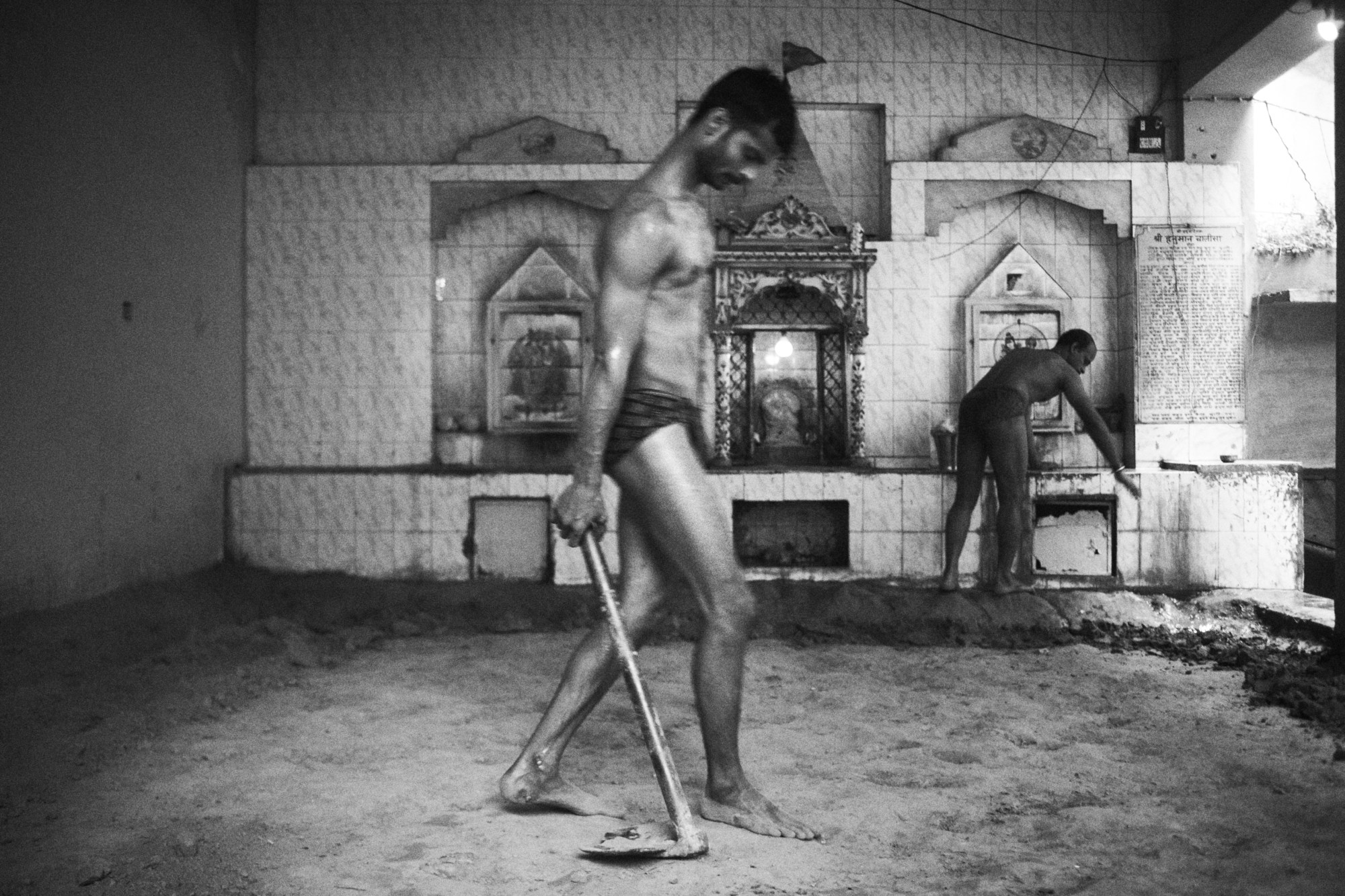
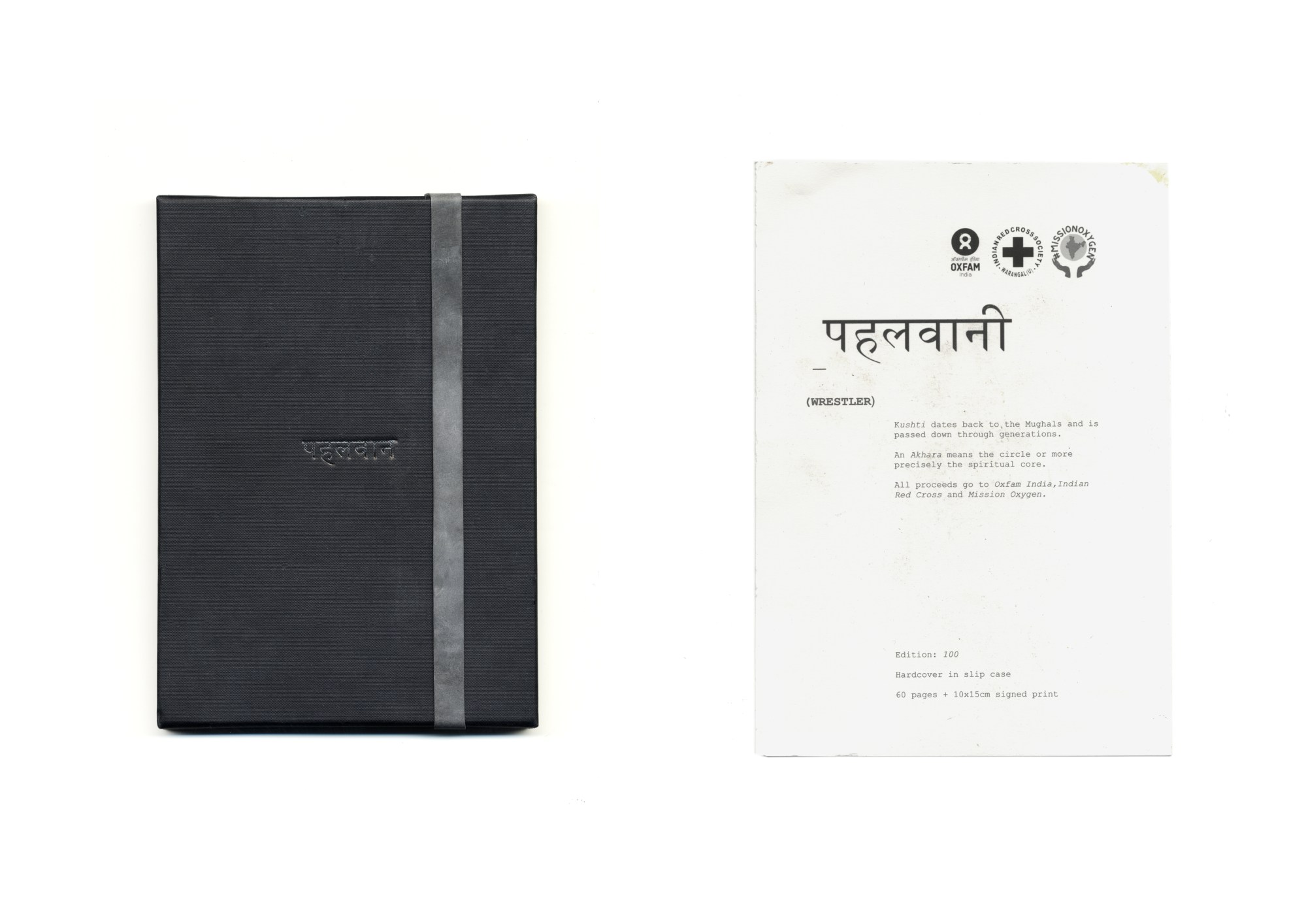
All proceeds from the sale of ‘पहलवानी’ go to Oxfam India, Indian Red Cross and Mission Oxygen. Photography by Douglas Irvine. Edition: 100. Hardcover in slip case. 60 pages + 10x15cm signed print. Also available at @clairederoeun @donlonbooks @yvonlambert
Credits
All images courtesy Douglas Irvine
